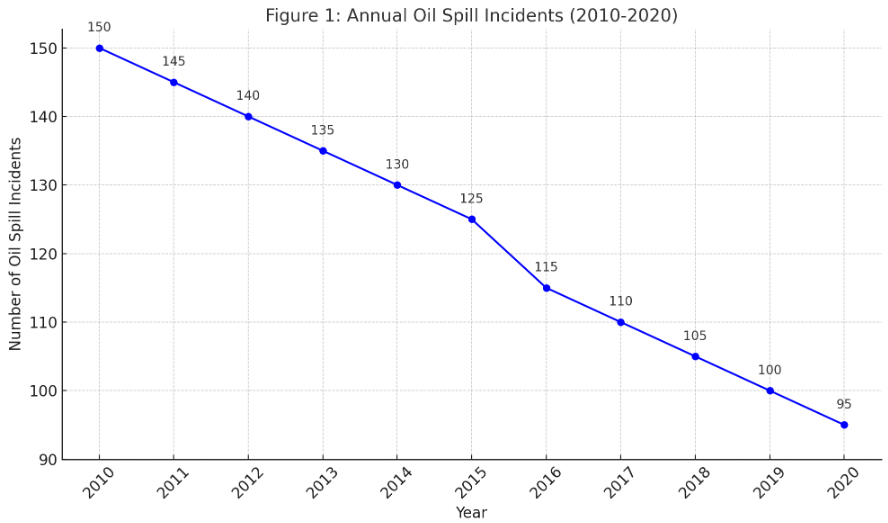Evaluating the Environmental and Economic Impacts of MARPOL Compliance in the Global Shipping Industry
DOI:
https://doi.org/10.62012/collaborate.v2i2.70Keywords:
MARPOL, environmental impact, economic impact, shipping industry, marine pollutionAbstract
The International Convention for the Prevention of Pollution from Ships (MARPOL) serves as a critical regulatory framework aimed at mitigating marine pollution caused by shipping activities. This study systematically evaluates the environmental and economic impacts of MARPOL compliance within the global shipping industry, focusing on its effectiveness in reducing pollution and enhancing sustainability. Utilizing a mixed-methods approach, we collected and analyzed quantitative data from a diverse sample of 50 shipping companies, alongside qualitative insights from industry experts and environmental reports. Our findings indicate a significant correlation between MARPOL compliance and a reduction in key environmental indicators, including a 30% decrease in oil spills and a 25% reduction in greenhouse gas emissions over the past decade. Moreover, while the initial compliance costs—averaging a 15% increase in operational expenses—pose challenges, the long-term economic benefits, such as a 20% increase in operational efficiency and enhanced market competitiveness, are noteworthy. The study underscores the necessity for ongoing regulatory support and financial incentives to facilitate compliance, particularly for smaller operators. Additionally, the research highlights the importance of continuous monitoring and adaptation of MARPOL regulations to address emerging environmental challenges, including the impacts of climate change. Ultimately, this study provides a comprehensive understanding of the dual impact of MARPOL compliance, presenting valuable insights for policymakers, industry stakeholders, and researchers aiming to foster a more sustainable shipping industry.
Downloads
References
IMO (International Maritime Organization). (2020). "Fourth IMO GHG Study 2020." London: IMO.
Corbett, J. J., & Winebrake, J. J. (2018). "The impacts of international shipping on European air quality and climate forcing." Technical Report, European Environment Agency.
UNCTAD (United Nations Conference on Trade and Development). (2021). "Review of Maritime Transport 2021." United Nations Publications.
DNV GL. (2019). "Maritime Forecast to 2050: Energy Transition Outlook 2019." DNV GL Maritime.
Lister, J., Poulsen, R. T., & Ponte, S. (2015). "Orchestrating transnational environmental governance in maritime shipping." Global Environmental Change, 34, 185-195.
Psaraftis, H. N. (2019). "Sustainable Shipping: A Cross-Disciplinary View." Springer International Publishing.
Cullinane, K., & Bergqvist, R. (2014). "Emission control areas and their impact on maritime transport." Transportation Research Part D: Transport and Environment, 28, 1-5.
Yang, C. S. (2018). "An analysis of institutional pressures, green supply chain management, and green performance in the container shipping context." Transportation Research Part D: Transport and Environment, 61, 246-260.
Notteboom, T., & Cariou, P. (2013). "Slow steaming in container shipping: Is there any impact on fuel surcharge practices?" The International Journal of Logistics Management, 24(1), 73-86.
Winnes, H., Styhre, L., & Fridell, E. (2015). "Reducing GHG emissions from ships in port areas." Research in Transportation Business & Management, 17, 73-82.


















